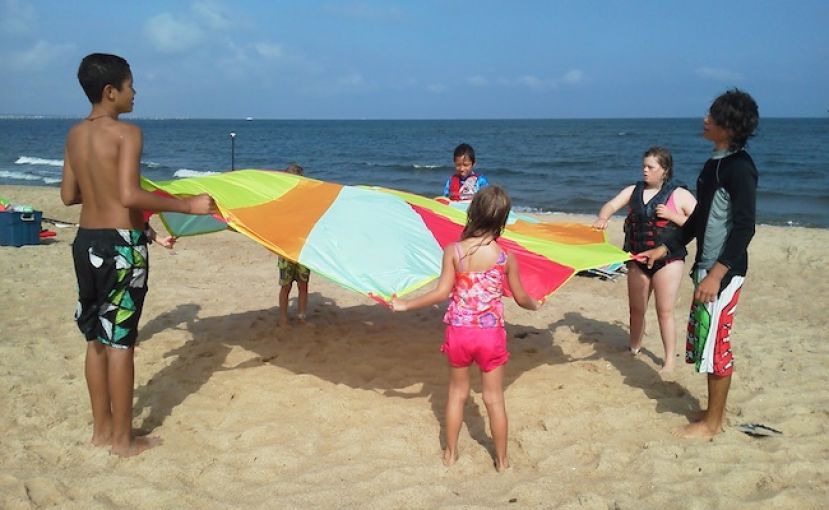Kelskids - Making A Difference With SUP
- Written by Clayton Truscott
- Published in Profiles
- Comments::DISQUS_COMMENTS
VIRGINIA BEACH, Virginia - Last week we reported a story about three paddle boards that were stolen from KelsKids, a nonprofit organization that provides paddle boarding, swimming and aquatic safety programs for children who have diagnosed disabilities. To find out more about KelsKids and how it uses paddle boarding to make a difference, we spoke to the owner and founder, Kellie Maier.
VIRGINIA BEACH, Virginia - Last week we reported a story about three paddle boards that were stolen from KelsKids, a nonprofit organization that provides paddle boarding, swimming and aquatic safety programs for children who have diagnosed disabilities. Using the physical and emotional benefits of spending time in the water, KelsKids is able to provide a calming experience that is doing incredible work with children who have conditions that don't always make it easy to participate in sports. It's an entirely non-profit organization. To find out more about KelsKids and how it uses paddle boarding to make a difference, we spoke to Kellie Maier, the person who started the organization and wrote the program.
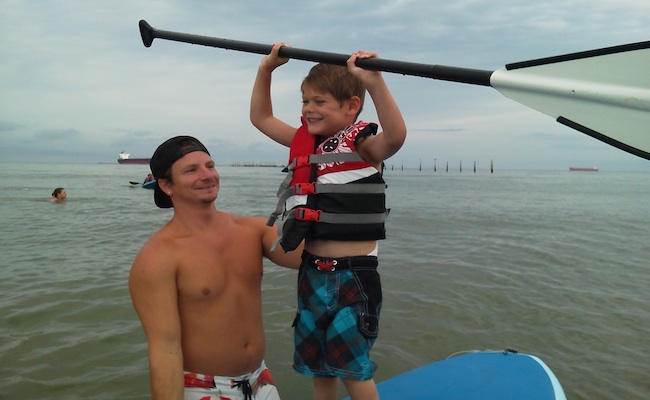
Supconnect: When did you start incorporating paddle-boarding into the program?
Kellie: When it first came out, I got one and loved it. When I woke up the next day, I realized I was stiff and certain muscles were sore and knew straight away that I had to utilize this. Building the core can also stimulate brain development. We're all connected - our body is one - and physical, mental and emotional is all tied together. And what I've found is that many times, children with special needs have physical limitations as well, and a lot of times the core is a weak area. And I can build core muscles through the paddle board in a manner that I couldn't do on land.
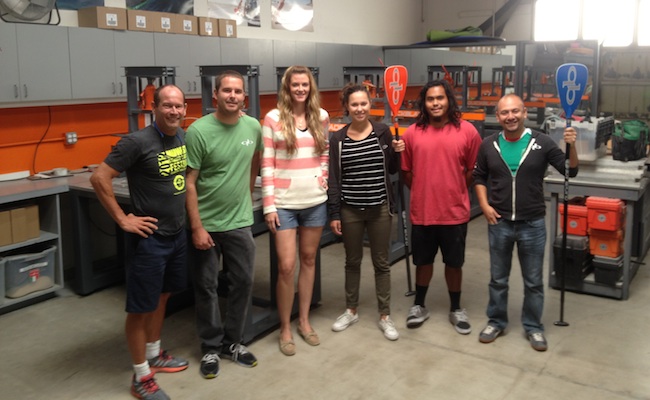
The generous team at Quickblade who donated paddles to KelsKids
Supconnect: *We heard about Jim Terrell from Quickblade donating some new paddles to the prgram?
Kellie: That was great. We are always in need of paddles. There are quite a few children who require adapted paddles, because of missing limbs or physical condition, so that limits the number of paddles that aren't adapted. I told one of the kids last night that we were getting new paddles and he said, "I won't have to share all the time!" Thanks so much to the - it was such a great outpouring.
Supconnect: Can you tell us a bit about the children you work with?
Kellie: We accept kids with any diagnosed disability. About 75% of the children I work with have autism, but there is a large number of kids who have other special needs; down syndrome, cerebral palsy or children with multiple disabilities. We are completely non-profit and most of our children (90% or more) are all on scholarships. So any donations made go straight to the kids and the programs. The leading cause of death for people with autism is drowning, so in 2012 I went non-profit, so that I could make it affordable for all families to bring their kids. My goal in beginning this program is to change that and to make our programs accessible to all. We have programs in other areas, where I'll go and train people how to run the program or will do day or week camps in other programs. I'm happy to travel to other places to help other people start a program.
Supconnect: How do the kids respond to getting in the water with you?
Kellie: It's amazing - it builds up muscles, confidence, strength. They are swimming with flotation or adapted flotation devices we've come up with, and they get a sense of independence within the water. I truly am a water person and I believe there's healing in the water. Not that it's a magic power, but there's a natural resistance/anti-gravity, so the pressure on the muscles and the limbs is not as great. It gives them a confidence, success and a sense of comfortability.
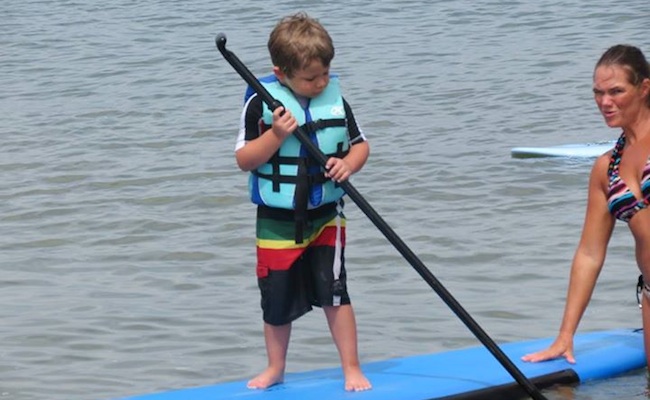
In the summer and spring I have the children on the stand up paddle boards and we're in the ocean, the bay, the lakes, canals - we go everywhere, depending on the weather. We've been out on the bay and had dolphins jumping right in front of us, riding beside us, right close - to a point where you could reach out and touch them and hear the dolphins clicking. Children, even if they're non-verbal - they get it and it provides a whole sense of peace and comfort. A lot of the time children with autism are so uncomfortable in our world - our world is so over stimulating - and when we get them in the water, they're comfortable and desensitized.
Supconnect: How do the parents respond?
Kellie: The parents make my day - the children I love and care for like my own. But to see the parents come up to the beach and watch their children. Parents of children with special needs have a very different life to your typical family. They're not raising an NFL quarter back or whatever else is important in this world, and they've accepted that. But when the see their kids surfing, stand up paddle boarding and doing better than they could even do sometimes, they're just amazed and so happy, proud and thrilled for their children.
Supconnect: Is it difficult for the kids getting starting off?
Kellie: We first establish a relationship first to build trust. A lot of the time we'll start off on the board with them, once they're comfortable getting in. I do different camps - 1 day, 3 day, 4 day camps - and by the end of the period they're on the board, paddling.
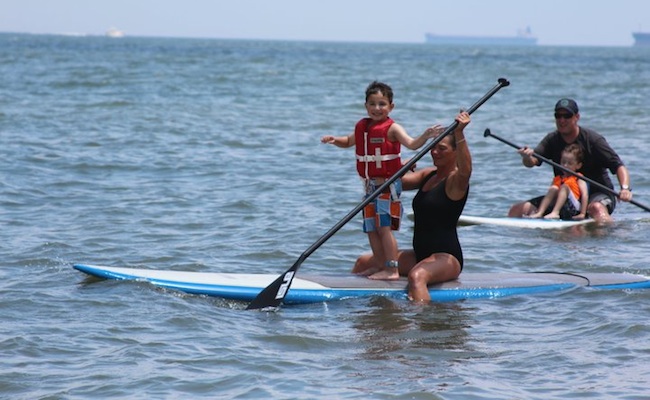
I set my expectations very hight for all the children. The program that I've written is based on experience, trial, error and success, and it's proven 100% successful in some manner for every child. We use adapted flotation for children that are blind or deaf, and we've incorporated sign language and alternative communication to make it all-inclusive. Most of the children I work with are non-verbal, and through the water - swimming and paddle boarding - they can communicate all that they can do. There is so much more to any child with autism than what meets they eye.
Supconnect: What are some of the biggest challenges you face?
Kellie: I am always looking for volunteers. The kids are phenomenal, the kids are amazing, the community is supportive, but the hardest part is keeping volunteers.
*After hearing about the incident, the team at Quickblade stepped up and donated some paddles to help out and give the kids more opportunity to do what we all love so much.
© Copyrighted & Exclusive SupConnect.com Content.
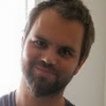
Clayton Truscott
Truscott is a widely published author in the surfing and travel world, has a master's degree in creative writing, and comes from a diverse backgroun in water sports.
Email This email address is being protected from spambots. You need JavaScript enabled to view it.
